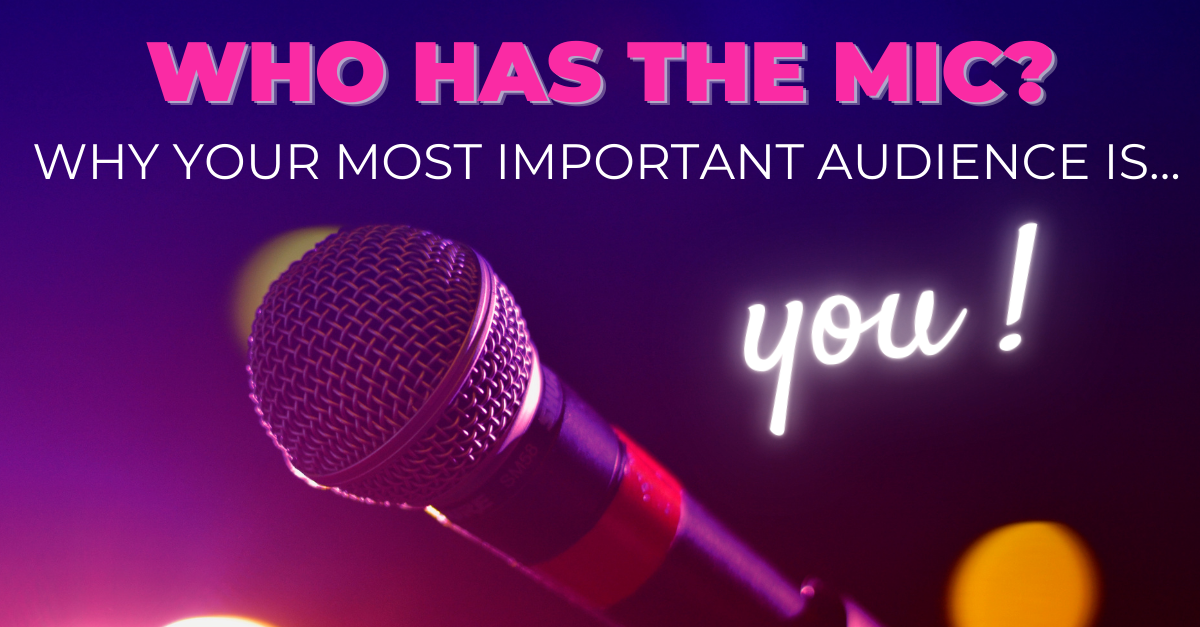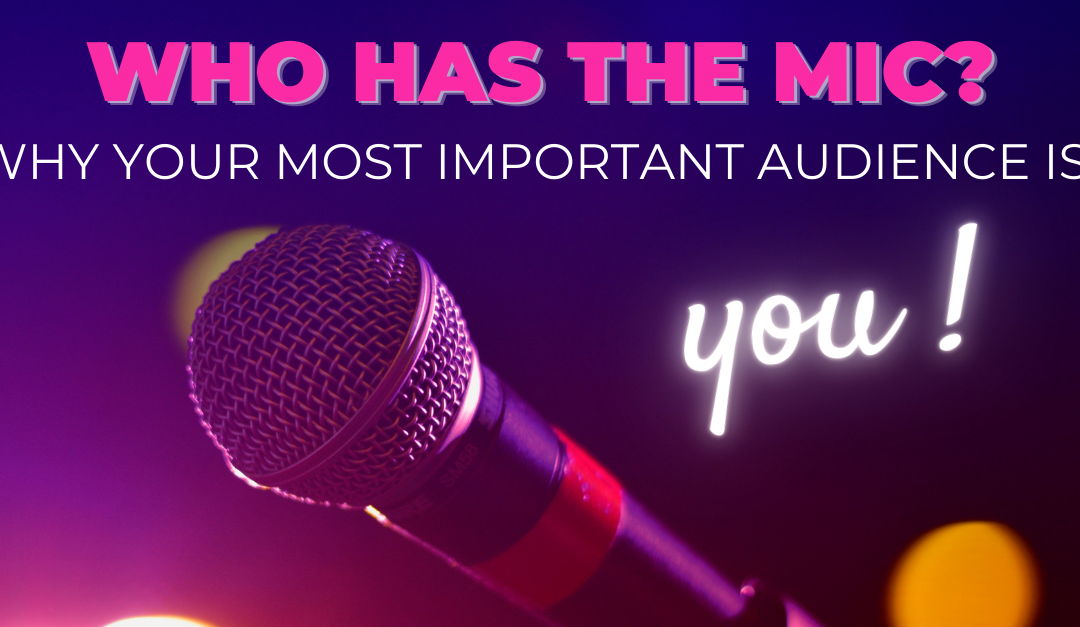Guest Blog By Laura Bond Williams, M.A.

Women (and men) in communication are people who choose words (and pictures) carefully.
We pursue these careers with heart and soul, charged by the ever-changing tasks of choosing words and images to tell stories that build businesses and organizations with real impact and that create positive change in our world. You may be researching, writing, designing, speaking, planning and producing communication to elevate a mission, inspire with a vision, and engage audiences with new ideas, products, services, and policies. We like to understand our audiences inside and out and develop a deep understanding of what motivates them to act.
But what about times when we feel stuck, overwhelmed or unsure? Maybe it’s when you’re reacting to last-minute requests, designing and editing by committee, and managing budgets, timelines and expectations. Creating may feel hard. You begin to feel like your tank of well-being is draining fast.
And why is that? Because in those times, we tend to overlook our most important audience. We give the proverbial microphone to a critical voice in our heads.
Who is the most important audience you talk to every day? It’s always you.
How we talk to ourselves matters. As a communicator, you know how to create a voice for others, but what about you? How do you talk to yourself when you’re thinking about your work and feel stressed or anxious? These feelings may appear when you read a client’s email or reflect on a colleague’s remark at a meeting. Or you may notice them when you’re thinking about something with higher stakes, like your next career move.
At a recent Careers over Coffee (CoC) South, we focused on strategies for acknowledging and managing how we talk to ourselves, especially when our inner critic has the microphone. Inspired by the book Reform Your Inner Mean Girl(™) (Arylo & Ahlers), our former WCA president, award-winning communication pro and CoC South moderator Kerri Qunell chose this topic. I was invited to lead our Careers over Coffee conversation, and I guided our group through an exercise to understand the powerful effect of that voice on our lives. Arylo and Ahlers call that voice our Inner Mean Girl(™), and she lives in all of us.
She may only show up on occasion, or she may have a seat in your office. Our Inner Mean Girls(™) have unique combinations of familiar traits and habits – she may be a perfectionist or worrywart; a comparison queen or achievement junkie; a fixer and rescuer or drama queen. Or, she may borrow the voice and tone of someone in your life with opinions on what you should or should not do.
And why is she there?
The truth is a part of us believes she helps us succeed. She might even think she’s responsible for our superpower – e.g., “being a perfectionist makes me a good editor” or “responding to emails immediately makes me great with clients.” For me, one of my Inner Mean Girl mistruths was “thinking about what can go wrong makes me strategic.”
We may want her to be quiet, but we are uncomfortable with the thought of her leaving. Because the way we talk to ourselves is a familiar, comfortable habit.
Not sure how your Inner Mean Girls(™) is affecting you? Here’s a few signs that she may be wielding more influence than you want her to:
- Procrastination: you are familiar with the one-two punch of unmade decisions and unfinished tasks;
- Resentment or Rejection: you find yourself comparing your work or your life to a colleague or friend who has something that you also want and don’t have yet;
- Burnout: at least one day a week, you’re feeling stuck or overwhelmed, or perhaps a debilitating brew of uncertainty, hopelessness, or confusion.
Each of these is a sign that your Inner Mean Girl(™)has some control in your life and is putting obstacles between you and what you want. (And if none of these signs feel true – hurray!) But there’s a sure way to find out if she wants to take the wheel: Set an ambitious goal.
When we set goals, our inner critic has opinions, and she wants to be seen and heard. When you can skillfully allow her story and understand why she’s there, then you create more compassion as you take the next step toward any goal or task.
Professional communicators are perpetual learners. We seek new strategies and tools to create better content and relationships with audiences. So what communication strategy are you using with your most important audience? How do you talk to you? To create the strongest foundation for your ambitious goals, projects and dreams, remember that you come first. When you choose how to talk to yourself about work and life, you possess the fundamental skill to change anything in your life or career and achieve what you want most.
Want to understand your Inner Mean Girl(™) better? Learn more about her with this short quiz at Inner Mean Girl Reform School.
WCA Member Laura Bond Williams, M.A., combines her 25-year career in public relations and communications with life coaching strategies to help people connect and communicate with their inner critics and pursue personal and professional goals with confidence. Her experience includes reassigning her Inner Mean Girls(™) to stress less and have more fun. A lifelong mover and dancer, Laura also helps people get stronger minds and bodies through movement as a Pilates instructor at Pilates South Austin and B Pilates.
- How can I make my resumé stand out? - July 13, 2025
- In Memoriam: Pam Baggett-Wallis - February 5, 2024
- Anne Lasseigne Tiedt, APR - January 6, 2024

